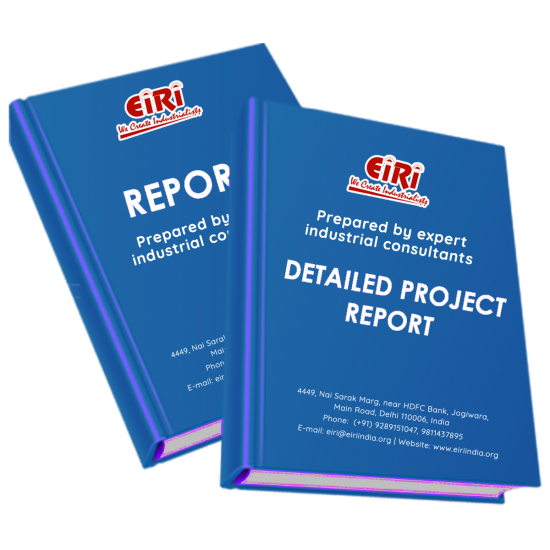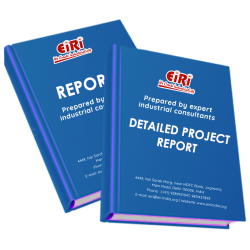Detailed Project Report on formaldehyde 37% (capacity: 80 tpd)

- More than 40 years of experience
- Managed by expert industrial consultants
- ISO 9001-2015 Certified
- Registered under MSME, UAM No: DL01E0012000
- 24/5 Research Support
Get your quesries resolved from an industry expert. Ask your queries before report or book purchase. - Custom Research Service
Speak to the our consultant to design an exclusive study to serve your research needs. - Quality Assurance
All reports are prepared by highly qualified consultants & verified by a panel of experts. - Information Security
Your personal & confidential information is safe & secure.
FORMALDEHYDE 37% [3597]
The commercial production of formaldehyde was first started in Germany in the 1880s but the development of a methanol synthesis route in the 1920s gave the spur to the development of large-scale manufacture. Today there are two main routes: oxidation-dehydrogenation using a silver catalyst involving both the complete or incomplete conversion of methanol; and the direct oxidation of methanol to formaldehyde using metal oxide catalysts (Formox process). In the silver catalyst route, vapourised methanol with air and steam is passed over a thin bed of silver-crystal catalyst at about 650oC. Formaldehyde is formed by the dehydrogenation of methanol. The heat required for the endothermic reaction is obtained by burning hydrogen contained in the off-gas produced from the dehydrogenation reaction. The other route involves the oxidation of methanol over a catalyst of molybdenum and iron oxide. A mixture of air and methanol is vapourised and passed into catalyst-packed reactor tubes. The reaction which takes place at 350oC is highly exothermic and generates heat to provide steam for turbines and process heating. Perstorp offers a high pressure version of the Formox process which can be retrofitted to existing plants to boost capacity. The high conversion rate of the Perstorp process eliminates the need for methanol recovery via distillation and it can produce formaldehyde at concentrations up to 57%. Yields from both processes are around 90% to 92% but the oxidation route has a lower reaction temperature and the metal catalyst is cheaper than silver. However, the partial oxidation-dehydrogenation route is still the most prevalent. Though, there are several routes to manufacture formaldehyde only routes based on catalytic oxidation of methanol are being employed today. Today, all of the world's commercial formaldehyde is manufactured from methanol and air using either a silver catalyst or a metal oxide catalyst. Silver catalyst process combines dehydrogenation and oxidation to obtain formaldehyde, while metal oxide process employs an oxide catalyst for a direct oxidation route to formaldehyde. In comparison to conventional silver process which is based on incomplete conversion and distillative recovery of methanol, metal oxide process has higher yield, lower energy consumption through excess steam generation and produces highly concentrated formaldehyde solutions without distillation, allowing for low operating cost. The improved version of silver process, which employs complete conversion of methanol avoiding distillation step, has made it possible to produce formaldehyde of higher concentration with substantial reduction in energy consumption levels.
COST ESTIMATION
Plant Capacity 80 Ton/Day
Land & Building (2 Acre) Rs. 4.54 Cr
Plant & Machinery Rs. 3.42 Cr
Working Capital for 2 Months Rs. 5.96 Cr
Total Capital Investment Rs. 14.40 Cr
Rate of Return 31%
Break Even Point 52%
INTRODUCTION
USES OF FORMALDEHYDE
FORMALDEHYDE USES IN INDUSTRY:
FORMALDEHYDE USES IN MEDICINE:
FORMALDEHYDE USES IN BUILDING AND CONSTRUCTION:
FORMALDEHYDE USES IN FOOD AND OTHERS:
PROPERTIES & CHARACTERISTICS
FORMALDEHYDE GAS
FORMALDEHYDE SOLUTIONS (37 PER CENT)
FORMALIN
CONTAINERS & REGULATIONS
GRADES OF FORMALDEHYDE
HAZARD
TOLERANCE
EXPLOSIVE LIMITS
SHIPPING REGULATIONS
SPECIFICATION, QUALITY CONTROL OF FORMALDEHYDE
FORMS OF FORMALDEHYDE
USES AND APPLICATIONS
INDUSTRIAL APPLICATIONS
DISINFECTANT AND BIOCIDE
TOXICOLOGY
SYMPTOMATOLOGY
A. INHALATION
B. INGESTION
C. SKIN CONTACT
TREATMENT
LABORATORY
B.I.S. SPECIFICATION
REQUIREMENTS
TABLE REQUIREMENTS FOR FORMALDEHYDE SOLUTION
PACKING AND MARKING
ANALYSIS OF FORMALDEHYDE SOLUTION
QUALITY OF REAGENTS
DETERMINATION OF ACIDITY
DETERMINATION OF ASH
DETERMINATION OF ALDEHYDE CONTENT
DETERMINATION OF IRON
DETERMINATION OF METHANOL CONTENT
METHOD A (GRAPHICAL METHOD)
METHOD B (CHEMICAL METHOD)
TEST FOR HEAVY METALS (OTHER THAN IRON)
ECONOMIC ASPECTS
PHYSICAL PROPERTIES OF FORMALDEHYDE
PROPERTIES OF AQUEOUS SOLUTION OF FORMALDEHYDE
MANUFACTURE OF FORMALDEHYDE
COMMERCIAL MANUFACTURE
SILVER PROCESS
OXIDE PROCESS
TYPICAL SPECIFICATIONS OF DIFFERENT GRADES OF FORMALDEHYDE
RAW MATERIALS RESOURCE
USES
PRODUCTION
USES OF FORMALDEHYDE
AGRICULTURE
AUTOMOBILES
CEMENT CONCRETE
COSMETICS
DISINFECTANT
EMBALMING AGENT
EXPLOSIVES
FUELS
FERTILIZERS
PAPER
RUBBER
SURFACE-ACTIVE AGENTS
TEXTILES
POLYACETALS
CARDANOL RESINS
NEWER APPLICATIONS
MARKET POSITION OF FORMALDEHYDE
FORMALDEHYDE TO CONTINUE AS A SIGNIFICANT METHANOL CONSUMER
INSTALLED CAPACITY & PRODUCTION OF FORMALDEHYDE
CONSUMPTION OF FORMALDEHYDE
EXPORT DATA OF FORMALDEHYDE
IMPORT OF FORMALDEHYDE
TOP FIVE DESTINATION OF FORMALDEHYDE
CAPACITY OF FORMALDEHYDE
GLOBAL OUTLOOK
WORLD PRODUCTION OF FORMALDEHYDE: (BILLION POUNDS, 27%)
CONSUMPTION PATTERN OF FORMALDEHYDE
SAFE HANDLING
GLOBAL PATTERN OF DEMAND
TECHNOLOGY LICENSORS
ECONOMICS
SAFETY AND HEALTH CONCERNS
MANUFACTURERS/SUPPLIERS
ROUTES AVAILABLE FOR PRODUCTION OF FORMALDEHYDE
PROCESS DESCRIPTION:
PRODUCTION OF FORMALDEHYDE FROM METHANOL
MANUFACTURING PROCESS OF FORMALDEHYDE 37%
DIFFERENT PROCESSES TO MANUFACTURE FORMALDEHYDE
1. FROM METHYL ALCOHOL:
2. FORMALDEHYDE PRODUCTION FROM METHANE:
3. FROM WATER GAS.
MANUFACTURE:
MATERIAL REQUIREMENTS
PROCESS
SILVER-CATALYST PROCESS
BY-PRODUCTS
LIFE OF SILVER CATALYST
POISONING OF CATALYST
OVERCOMING CATALYST POISONS
OCCURENCE OF REACTION
FLOW DIAGRAM OF TYPICAL SILVER-CATALYST PROCESS
METAL OXIDE CATALYST PROCESS
FROM NATURAL GAS
TESTING OF FORMALDEHYDE
1. PYROGALLOL TEST:-
2. REMINI'S TEST:-
3. SCHRYVER"S TEST.
PROCESS FLOW SHEET FOR THE MANUFACTURE OF FORMALDEHYDE
FROM METHANOL
FORMALDEHYDE PRODUCTION PROCESSES
METHANOL YIELD
ENERGY CONSUMPTION
CATALYST
STEAM
PLANT CAPACITY
PROCESSES FEATURES
SAFETY
PRODUCT QUALITY
SPECIAL PRODUCT
SYNTHESIS AND INDUSTRIAL PRODUCTION OF FORMALDEHYDE
ORGANIC CHEMISTRY
SELF-CONDENSATION AND HYDRATION
OXIDATION
HYDROXYMETHYLATION AND CHLOROMETHYLATION
BASE REACTIONS
PLANT LAYOUT
SUPPLIERS OF RAW MATERIALS
SUPPLIERS OF PLANT AND MACHINERY
MIXING VESSEL
REACTORS
LABORATORY EQUIPMENTS
BOILERS
D.G. SETS
EFFULENT TREATMENT PLANT (ETP PLANT)
APPENDIX – A:
01. PLANT ECONOMICS
02. LAND & BUILDING
03. PLANT AND MACHINERY
04. OTHER FIXED ASSESTS
05. FIXED CAPITAL
06. RAW MATERIAL
07. SALARY AND WAGES
08. UTILITIES AND OVERHEADS
09. TOTAL WORKING CAPITAL
10. TOTAL CAPITAL INVESTMENT
11. COST OF PRODUCTION
12. TURN OVER/ANNUM
13. BREAK EVEN POINT
14. RESOURCES FOR FINANCE
15. INSTALMENT PAYABLE IN 5 YEARS
16. DEPRECIATION CHART FOR 5 YEARS
17. PROFIT ANALYSIS FOR 5 YEARS
18. PROJECTED BALANCE SHEET FOR (5 YEARS)
How to Make Project Report?
Detailed Project Report (DPR) includes Present Market Position and Expected Future Demand, Technology, Manufacturing Process, Investment Opportunity, Plant Economics and Project Financials. comprehensive analysis from industry covering detailed reporting and evaluates the position of the industry by providing insights to the SWOT analysis of the industry.
Each report include Plant Capacity, requirement of Land & Building, Plant & Machinery, Flow Sheet Diagram, Raw Materials detail with suppliers list, Total Capital Investment along with detailed calculation on Rate of Return, Break-Even Analysis and Profitability Analysis. The report also provides a birds eye view of the global industry with details on projected market size and then progresses to evaluate the industry in detail.
We can prepare detailed project report on any industry as per your requirement.
We can also modify the project capacity and project cost as per your requirement. If you are planning to start a business, contact us today.
Detailed Project Report (DPR) gives you access to decisive data such as:
- Market growth drivers
- Factors limiting market growth
- Current market trends
- Market structure
- Key highlights
Overview of key market forces propelling and restraining market growth:
- Up-to-date analyses of market trends and technological improvements
- Pin-point analyses of market competition dynamics to offer you a competitive edge major competitors
- An array of graphics, BEP analysis of major industry segments
- Detailed analyses of industry trends
- A well-defined technological growth with an impact-analysis
- A clear understanding of the competitive landscape and key product segments
Need Customized Project Report?
- Ask for FREE project related details with our consultant/industry expert.
- Share your specific research requirements for customized project report.
- Request for due diligence and consumer centric studies.
- Still haven't found what you're looking for? Speak to our Custom Research Team
About Engineers India Research Institute:
Note: We can also prepare project report on any subject based on your requirement and country. If you need, we can modify the project capacity and project cost based on your requirement.
Our Clients

Our Approach
- Our research reports comprehensively cover Indian markets (can be modified as per your country), present investigation, standpoint and gauge for a time of five years*.
- The market conjectures are produced on the premise of optional research and are cross-accepted through associations with the business players
- We use dependable wellsprings of data and databases. What's more, data from such sources is handled by us and incorporated into the report
Why buy EIRI reports?
- Our project reports include detailed analysis that help to get industry Present Market Position and Expected Future Demand.
- Offer real analysis driving variables for the business and most recent business sector patterns in the business
- This report comprehends the present status of the business by clarifying a complete SWOT examination and investigation of the interest supply circumstance
- Report gives investigation and top to bottom money related correlation of real players/competitors
- The report gives gauges of key parameters which foresees the business execution






















